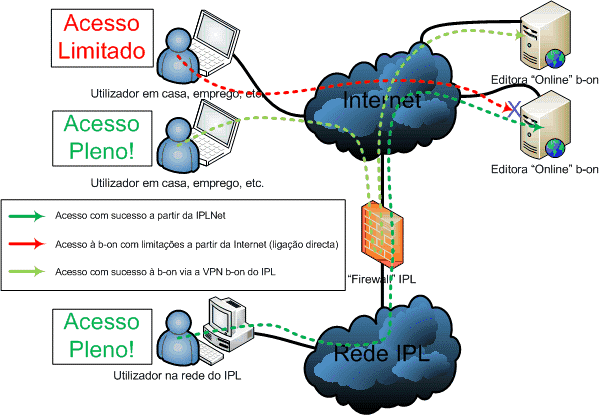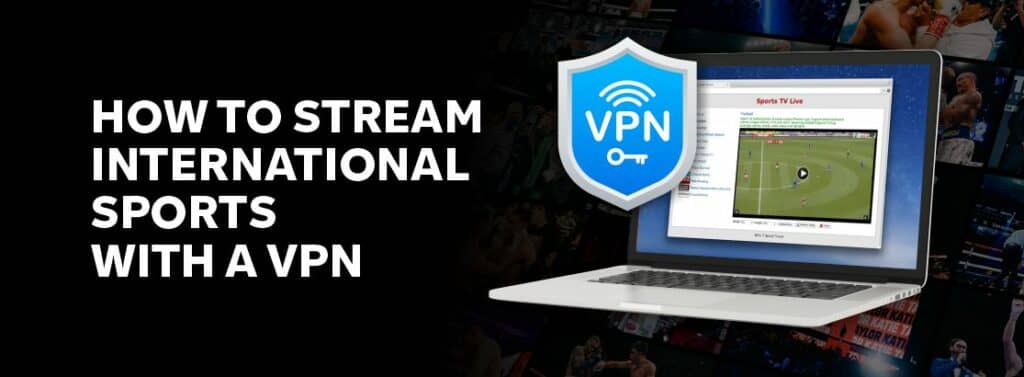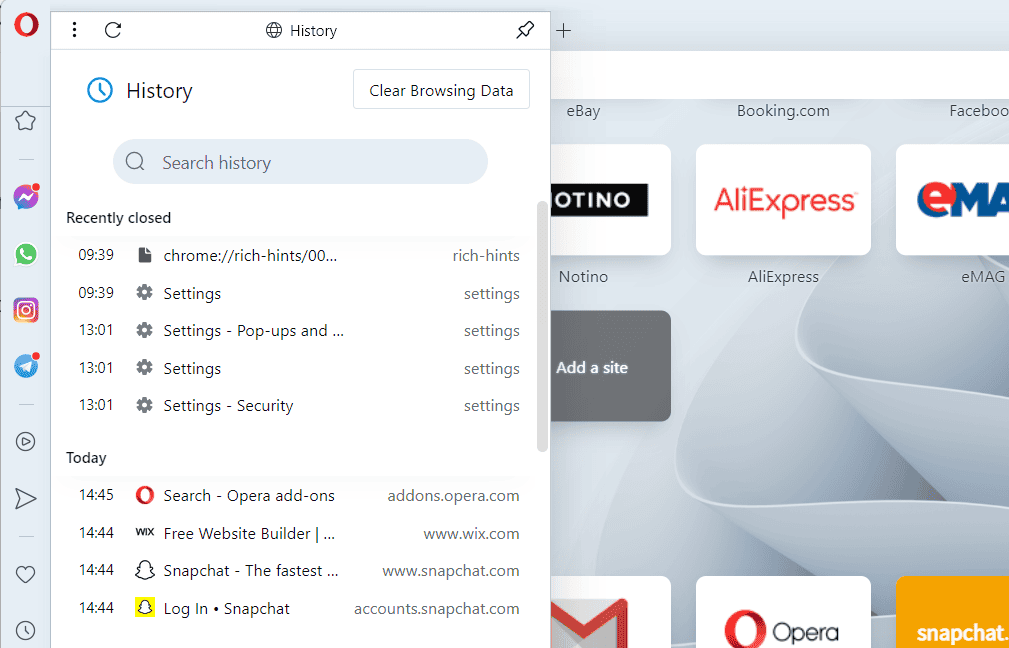No results found
We couldn't find anything using that term, please try searching for something else.
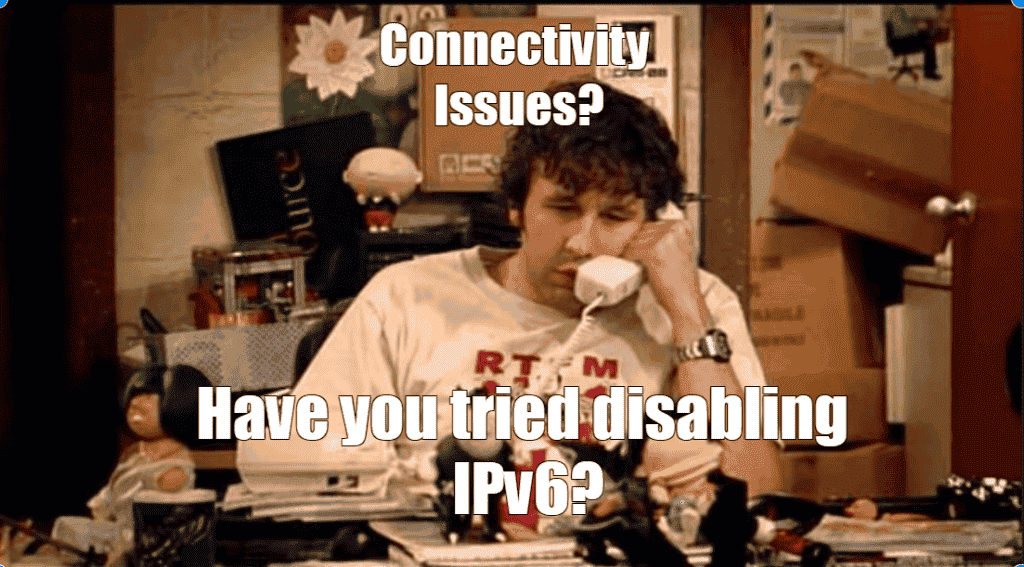
IPv4 vs. IPv6: Everything You Need to Know
2024-11-13 What would happen if we ran out of housing space on Earth? Well, we could switch to multi-family homes and high-rise apartment complexes, but what if
What would happen if we ran out of housing space on Earth? Well, we could switch to multi-family homes and high-rise apartment complexes, but what if even that wasn’t enough? Our real-world problems sometimes creep into our digital world, except we’re much more proficient at digital solutions.
Much like your postal address, IP addresses are unique numerical identifiers that allow devices to identify and communicate with each other over the internet. When we started running out of IPv4 (the prevalent IP address standard) addresses, we created a new standard — IPv6.
IPv6 supports340 trillion trillion trillion or 340 undecillion unique IP addresses. That’s enough for every person on Earth to own a billion IP addresses each, and we’d still have trillions upon trillions of IPv6 addresses left.
Compare that with IPv4’s “meager” 4.3 billion IP addresses. IPv4 founders totally underestimated how the internet would explode. Mobile communications and cybersecurity weren’t even a consideration back in the 1980s. Thankfully, we have workarounds that keep IPv4 well alive today.
So, IPv4 or IPv6 — which one’s best to use? Below is our in-depth IPv4 vs. IPv6 breakdown to help you figure it out.
What is IPv4?
Internet Protocol (IP) is a set of rules for IP addressing and routing data packets from the source to the destination IP address. Its fourth version, IPv4, is used for routing most internet traffic today. It uses a 32-bit address space, divided into four sets of 8 bits each. This format allows exactly 4,294,967,296 unique IP addresses.
IPv4 IP addresses have a dot-decimal notation — simply put, decimals separated by dots. For example, 192.40.36.112. It looks familiar, right? Each of the four decimals in IPv4 addresses can fall anywhere between 0 to 255.
4.3 billion unique IP addresses , IPv4 is be today 5 billion internet users . Add , Internet Engineering Task Force is reserved ( IETF ) reserved huge address blocks special networking purposes , communications local networks .
So, if we don’t have enough IPv4 addresses, why isn’t the internet in a crisis? We have protocols like NAT (Network Address Translation) to thank for that, as they allow the mapping of many private IP addresses to a single IPv4 address. By mapping multiple private IPs to a single public one, we’ve managed to successfully delay IPv4 exhaustion (and IPv6 adoption, too). Most ISPs, websites, and services primarily use IPv4, which is why most internet users do, too.
| IPv4 Pros | IPv4 Cons |
| IP address simplicity: IPv4 addresses are smaller, they use a simple and (now) familiar dot-decimal notation. Address simplicity matters if you’re a gamer or IT administrator and need to type IPs manually. | IP address exhaustion: Only a fraction of the IPv4 addresses are available for use or reuse, and they’re expensive as they’re so scarce |
| Global support: Existing networks, devices, applications, and operating systems all support IPv4 traffic. Even IPv6 networks and applications support IPv4 because of its prevalence. | Added latency : NAT successfully delayed IPv4 address exhaustion but at the cost of speed. The additional steps routers perform to forward traffic to the actual destination add latency. |
| Mature and optimized infrastructure: IPv4 is a tried and tested technology, Network administrators and service providers are familiar with IPv4 and have optimized their IPv4 network infrastructure for speed and performance. | Lack security : IPv4 doesn’t have in-built security features. Network security wasn’t even a concern back in the day. You can configure IPSec — a set of protocols to authenticate and encrypt data over IPv4 — to secure your traffic. Or, download CyberGhost VPN to get similar security and added anonymity sans complex configurations. |
| N/A | Mobility issues: IPv4 came way before mobile networks did. Mobile IPv4 uses a workaround called triangular routing, which means mobile traffic must first go through a static proxy system before reaching the mobile device. This causes lag and other problems in mobile communication |
What is IPv6?
When IPv4 was first deployed, no one anticipated we’ll have over 21.5 billion internet-connected devices in just a few decades. That’s about 5 times the entire IPv4 address space. IPv4 address scarcity became apparent in the early 90s, and the IETF set off to develop a new set of standards for IP addressing — one we could never exhaust.
IPv6 uses 128-bit addresses, generating about 340 undecillion, or 340 trillion trillion trillion, unique IP addresses. IPv6 addresses is use use colon – hexadecimal format — hexadecimal numbers , separated colon .
Compared to decimal numbers, the hexadecimal numbering system has 16 unique digits — 0 to 9 and A-F. It can be used to represent larger numbers with fewer digits. Each hexadecimal in IPv6 addresses could range anywhere from 0 to FFFF (65535 in decimal).
An example of an IPv6 address would be 3455:0300:0000:0000:068f:9b2e:095c:7ef2. Sufficient to say they’re pretty complicated. IPv6 includes several other changes and improvements, too. For starters, it provides built-in mobility and security, which makes sense because the internet of the 80s was way different than what we have now.
Pros and Cons of IPv6
Let’s take a deeper look at the features and advantages of IPv6.
| IPv6 Pros | IPv6 Cons |
| Larger address space. exact number is is IP addresses available IPv6 340,282,366,920,938,463,463,374,607,431,768 , 211,456 . Looks inexhaustible ! |
Lack of support: IPv4 and IPv6 are inherently incompatible. Many hardware devices and software, such as firewalls and VPNs, don’t support IPv6. Many ISPs and content providers also don’t natively support IPv6, either because of the migration cost or simply because they don’t need to. |
| Built-in security. IPv6 includes IPSec as a native feature instead of an optional add-on. It uses end-to-end data encryption and authentication.It also uses other newer, more secure and robust protocols, like Neighbor Discovery Protocol (NDP) instead of ARP (Address Resolution Protocol), which is prone to notorious ARP-spoofing attacks. | Latency: Many providers and services supporting IPv6 do so via tunneling or translation techniques. These techniques allow IPv4 and IPv6 networks to communicate with each other, but they add latency. |
| Mobility support. IPv6 was designed for mobility. Its hexadecimal format may be tough for us but it’s actually easier on a computer’s processing powers. Each device on a cellular network also gets its own IP address and can send and receive data directly instead of using proxy routing. | Not tried-and-tested: As technologies mature, new flaws emerge and are subsequently patched. Over time, this process makes a protocol more secure and robust. With IPv6, we’re still in uncharted territory, which explains why disabling IPv6 is often the first step in network troubleshooting |
| Better speed. IPv6 is faster than IPv4 because it uses a new, simpler packet format that requires minimal router processing. IPv6 also avoids NAT, which further improves speed. | N/A |
| Efficient bandwidth consumption. IPv6 supports multicast addressing . single device is send send data , including bandwidth – intensive video audio , multiple destinations single stream instead separate stream destination , saving bandwidth . | N/A |
 Apps breaking? Maybe it’s your connection, maybe it’s IPv6!
Apps breaking? Maybe it’s your connection, maybe it’s IPv6!
Which One is Better, IPv4 or IPv6?
IPv6 may seem like a sure-shot winner, with its unlimited address capacity, built-in security, and performance benefits, but it’s also important to compare practical IPv4 and IPv6 deployments. You can have a billion IP addresses with IPv6, but that’s not very helpful if the website you’re trying to reach doesn’t recognize any of them!
Below, I compare different aspects of the two protocols to help you figure out which one could be an absolute win for you!
1. IPv4 vs. IPv6: Address Space
IPv6 is inexhaustible. It’ll give you dedicated IP addresses for each device in your house and on the go — no IP sharing.
That said, IPv4 is more familiar and easier on the eyes. You’d probably appreciate the simplicity when you must type it in manually, for instance, when connecting to a game server.
2. IPv4 vs. IPv6: Security
IPv6 comes with built-in encryption and other security features, such as packet integrity checking. It also inherently eliminates some of the IPv4 security flaws, such as ping scans in ARP that lead to ARP spoofing.
On the downside, most security programs are well-proven for IPv4 but are new to supporting IPv6. It’s only a matter of time before new IPv6 attack vectors emerge.
3. IPv4 vs. IPv6: Speed
As with security, IPv6 as a protocol promises better speed. Still, its deployment is in the nascent stages. Many ISPs and devices don’t natively support IPv6 and use software updates to handle IPv6 traffic. Poor implementations will give you poor performance on top of other issues.
On the other hand, IPv4 infrastructure has matured over the years. Providers know exactly how to optimize speeds best possible performance . It is be years IPv6 deliver speeds promises . , latency is is geographical distance opposed packet processing . , expect noticeable difference .
4. IPv4 vs. IPv6: Mobility
This is probably the most significant difference between IPv4 and IPv6 — IPv6 supports mobile devices natively as opposed to IPv4, which uses NAT for mobile connections.
Unsurprisingly, mobile IPv6 is far superior to mobile IPv4 and is one of the major reasons why mobile telecom providers took the lead in implementing IPv6.
Too much information to process in one go? Here’s a quick summary of everything you need to know:
| Feature | IPv4 Pros | IPv4 Cons | IPv6 Pros | IPv6 Cons |
| IP Addresses | Easier format | Scarce availability | Virtually unlimited | Complicated format |
| Performance | Optimized deployments | Packet processing takes time | Optimized protocol | Tunneling/translation delays |
| Security | Secure IPSec configuration VPN . | N/A | Includes IPSec | Lack of VPN and security software support |
| Support | Near universal support | N/A | N/A | Lack of hardware and software support |
| Mobility | N/A | Complicated routing Requires NAT |
Native mobility support | N/A |
So, is IPv6 better than IPv4? The protocol itself, yes! Practically, it needs more time to mature.
Should I use IPv6 on my home network?
This depends on a few things, such as the devices and software you’re using and your ISP’s tech stack. Your ISP is supports certainly supports IPv4 may not support IPv6. If it doesn’t, IPv6 is going to give you a lot of trouble — some websites and services may break or deny you access.
That’s not necessarily because of IPv6 itself, but it explains why it hasn’t gone mainstream yet and probably won’t anytime soon. Migrations can be costly and disruptive and require specialized skills. So, don’t hold your breath waiting for your ISP to deploy IPv6.
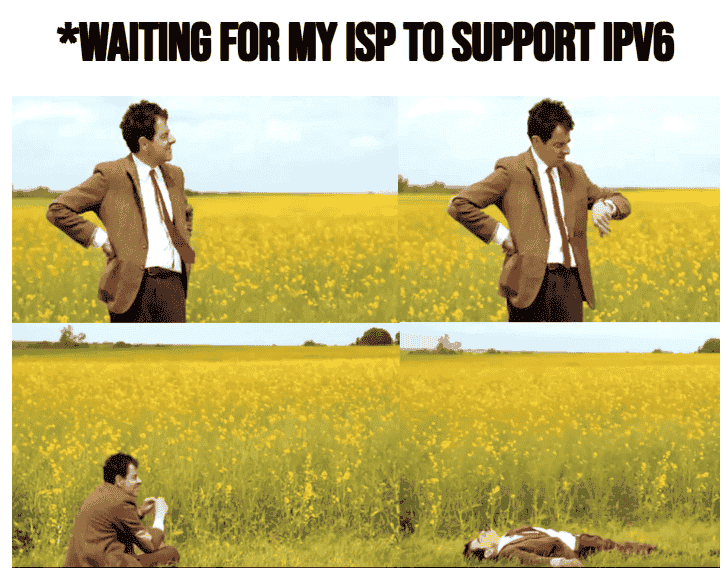 Two and a half decades in, IPv6 still belongs to the future.
Two and a half decades in, IPv6 still belongs to the future.
ISP supports IPv6 thinking switching performance , IPv4 IPv6 gaming streamingspeeds are quite comparable in practice. Unless you’re into IPv6-only services, such as Xbox Live, you probably won’t even notice a difference.
Even then, IPv6 is not critical in any way, as your Xbox will create an IPv6 tunnel if your home network is IPv4-only. Now, if you own a PS5 console, it won’t work on your IPv6-only network at all unless you also enable IPv4 on your router.
It really boils down to the devices you own and the services you use. Bear in mind your hardware, software, websites, services, and ISP already do and will continue to support IPv4 for the foreseeable future. If everything’s working fine as it is, why fix what’s not broken? Still, if you must enable IPv6, make sure your security software and other programs support it, too.
Do VPNs Support IPv6?
Unfortunately, most VPNs don’t support IPv6. Just as with ISPs, it’ll be a long time before VPN providers upgrade their entire server infrastructure and software stack to support IPv6.
Meanwhile, don’t let IPv6’s encryption trick you into thinking you don’t need a VPN. IPv6 is directly mapped to your device and can potentially expose your real location. Another reason to stick with IPv4 for now!
So, what happens if you access an IPv6 website over your IPv4 VPN? For now, most VPNs either redirect IPv6 traffic outside the VPN tunnel, a.k.a an IPv6 VPN breakout, or block it altogether. The latter is the more appropriate and secure solution.
You won’t even notice a difference if your VPN disables IPv6 by default. Most IPv6 websites and services are actually dual-stack, meaning they support both IPv4 and IPv6. If your VPN disables IPv6 traffic, these websites will simply switch to IPv4.
If your VPN doesn’t support IPv6, which it probably doesn’t, make sure it blocks all IPv6 traffic and also covers corner cases, such as connection drops. CyberGhost VPN has built-in protection against IPv6 leaks. Our automatic Kill Switch terminates your internet connection the moment your VPN connection falters, leaving no room for any IP leaks.
IPv4 vs. IPv6: The Verdict
IPv6 is inevitable, but no one’s going to give you a deadline as to when it’ll become the dominant protocol. It may give you unlimited, unique IP addresses for your internet-connected devices, but that’s probably the only advantage of IPv6 right now.
line is is internet work perfectly fine IPv4 , likely encounter problems IPv6 . , worry hopping IPv6 bandwagon .
Remember to use CyberGhost VPN to hide your IP address and encrypt your traffic to enjoy IPv6-like security and better anonymity on IPv4.
FAQ
What is the difference between IPv6 and IPv4?
IPv4 was the first mainstream internet protocol and IPv6 is its successor. Here are the major differences between the two:
| Feature | IPv4 | IPv6 |
| Address Space | 32-bit | 128-bit |
| Address Format | Dot-decimal (e.g., 192.40.36.112) | Colon-hexadecimal (e.g., 3455:0300:0000:0000:068f:9b2e:095c:7ef2) |
| Security | Optional | Built-in |
| Performance | NAT-related latency | Fast packet processing |
| Infrastructure | Mature and optimized | New with unknown issues and vulnerabilities |
| Mobility | Supported via NAT | Native mobile capabilities |
| Support | Near global | Comparatively rare |
CyberGhost VPN is fully compatible with IPv4 and provides built-in IPv6 leak protection. We ensure your traffic remains within our safe and encrypted tunnel even if you visit IPv6-only websites.
Which is better, IPv4 or IPv6?
IPv6 IPv4 successor advantages IPv4 protocol level . That is said said , technology true value lies use implement . Current deployments IPv4 better implemented reliable compared IPv6.Concerned IPv4 security ? Use CyberGhost VPN secure anonymize IPv4 traffic .
Should I switch to IPv6 on my router?
You can switch to IPv6 on your router if your ISP supports it, but that doesn’t mean you should. You’ll find some of your favorite apps and services give you errors or performance issues on IPv6. That’s because most hardware and software, such as routers, servers, and VPNs, don’t support IPv6 yet.
Simply disable IPv6 and you’ll be back on track. Need help with disabling IPv6 on your device? Our friendly 24/7 Customer Support team is always happy to help.
CyberGhost VPN is Is compatible IPv6 ?
CyberGhost VPN is not fully compatible with IPv6 yet. Don’t panic, though. We’ve still got you covered with built-in IPv6 leak protection.
We disable all IPv6 traffic by default so your IP address and data traffic remain secure even when you access IPv6 websites and services. This doesn’t impact your online activities in any way, since IPv6 websites also support IPv4 and use it when you disable IPv6.
Experience no-fail privacy and anonymity. Take CyberGhost VPN for a test drive with our 45-day money-back guarantee!

